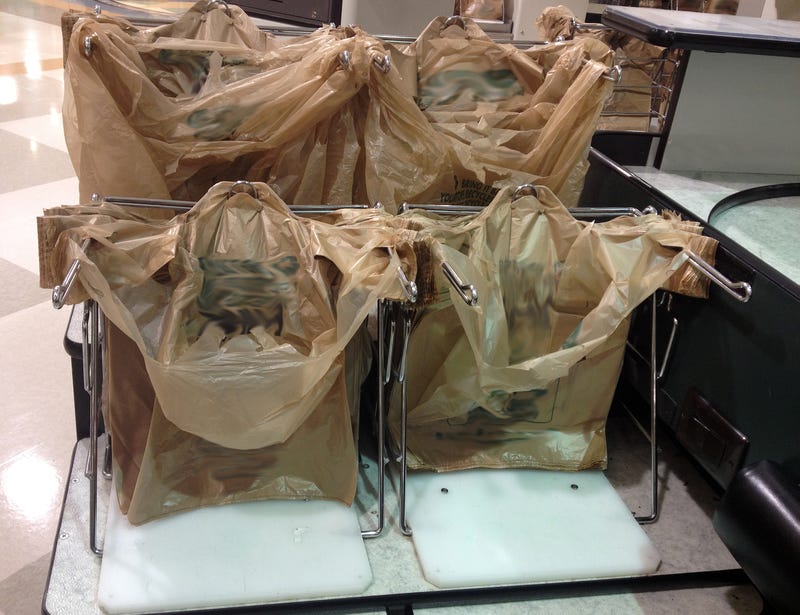
PHILADELPHIA (KYW Newsradio) — The City of Philadelphia is suing the Commonwealth of Pennsylvania to preserve its right to enforce a ban on single-use plastic bags, which is due to go into effect on July 1.
Gov. Tom Wolf vetoed the state legislature’s first attempt to pre-empt plastic bag bans so they attached it to a must-pass budget bill to get around his objections.
The city is asking Commonwealth Court to declare the state pre-emption on plastic bag bans unconstitutional. City solicitor Diana Cortes argued that tacking the provision onto a budget bill violates the state constitution's rule that legislation must have a single subject.
She said it also violates Pennsylvania's environmental rights amendment, "which imposes upon the state a duty to protect Pennsylvania's environment and natural resources."
Plastic bags produce a "staggering" amount of pollution, according to Logan Welde of the Clean Air Council, which backs the suit.
"Philadelphia alone consumes an estimated 1 billion plastic bags per year. There isn't really any part of the state that's untouched by this waste. Plastic bags are referred to as 'urban tumbleweeds,'" he said.
David Masur of PennEnvironment said plastic is one of the biggest ecological threats.
"Plastic never biodegrades. It just breaks down into smaller and smaller pieces which are then found in the food we eat, the water we drink and the air we breathe," he said.
The suit is joined by Narberth and West Chester, which also have plastic bag bans, and Lower Merion, which may want to institute one but would be unable to if the pre-emption stands.
Philadelphia's law is a baby step toward limiting the bags. There is no incentive for consumers to supply their own bags since they can still ask for paper — which is more costly for retailers.
Deputy Commerce Commissioner Karen Fegely said the city understands businesses are still struggling, and will provide what assistance it can. She added, however, the city will begin enforcing the law in October, following a three-month warning and education period, even if there's no ruling on the lawsuit.
A spokesman for the state House leader defended the pre-emption as following constitutional requirements. The Attorney General's Office, which is in charge of defending the state, said it has just received the lawsuit and is examining the claims.
